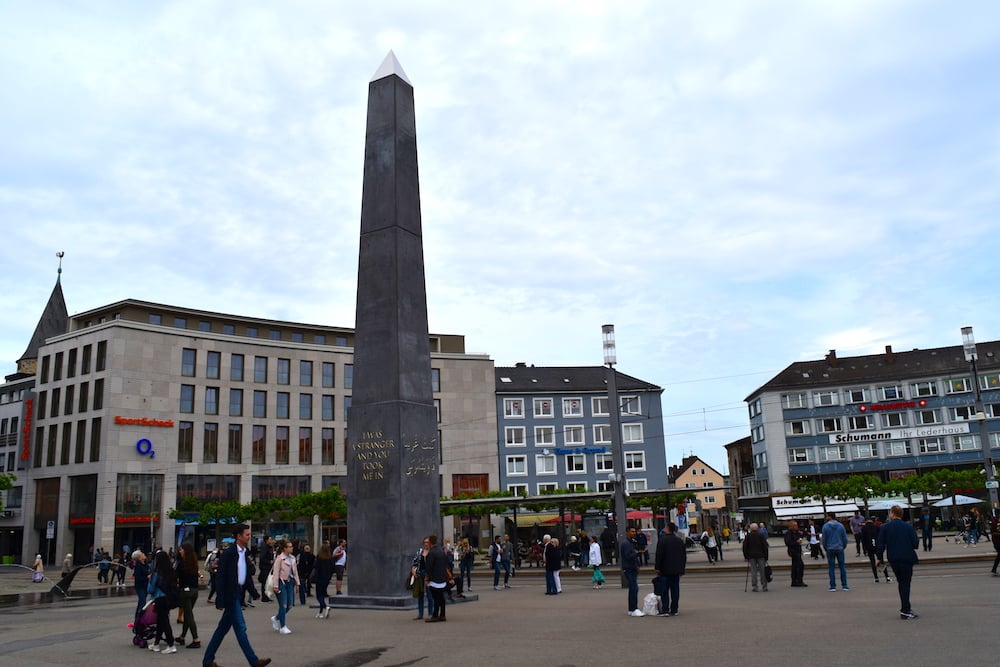Art World
Adam Szymczyk ‘Appalled’ After Far-Right Politician Assails documenta 14 Artwork in Echo of Nazi Slur
The venomous remark recalls the Nazis' use of the term "degenerate art."

The venomous remark recalls the Nazis' use of the term "degenerate art."

Hili Perlson

A Kassel city councillor from the German far-right party Alternative für Deutschland (AfD) has called a documenta 14 work prominently placed in a public square in Kassel “deformed art.”
At a city council meeting to discuss the possible acquisition of documenta 14 artworks, the politician Thomas Materner was quoted by the local paper Hessische/Niedersächsische Allgemeine as calling the 16-meter-high obelisk by American-Nigerian artist Olu Oguibe, “ideologically polarizing, deformed art.” He also argued that if the work were to remain in the city permanently, the AfD party will call for a demonstration at the site “after each terrorist act carried out by a refugee or an immigrant.”
The obelisk—which is emblazoned with the verse “I Was a Stranger and You Took Me In” written in gold letters in four languages—had won the city’s prestigious Arnold Bode Prize in late June, and is considered to have a good chance of becoming a permanent public sculpture. The city’s acquisition committee is expected to make a decision on September 5.
According to a report by the German news agency DPA, the artistic director of documenta 14, Adam Szymczyk, was “appalled” by the far-right official’s words. In a statement sent to artnet News, Szymczyk wrote:
The Obelisk by Olu Oguibe is a work of art commissioned by documenta 14 that became in a short time a generally known and much discussed public monument on Königsplatz. “I was a stranger and you took me in” (Matthew 25:35) can be read on four sides of the obelisk, in German, English, Arabic, and Turkish. I see no way how this quote from the New Testament should be read as divisive or controversial. It is simply human.In the history of the square, the reference to the difficult condition of being a stranger—or being taken for one, which is one and the same thing—appears as early as in Johann Wolfgang Goethe’s “Campagne in Frankreich 1792”.
(Szymczyk added that the passage in question from Goethe’s diary was also used as an opening quote for the first issue of documenta 14’s South as a State of Mind magazine in 2015.)
The AfD party’s campaign ahead of Germany’s general elections on September 24 has been fervently against Angela Merkel’s policies towards refugees.
Just this morning, the party presented its proposal to change the process of applying for asylum in Germany. The proposal suggests to deport “anyone who enters the European Union illegally after September 1.”
German newspapers reporting on the venomous comment by the Kassel city official noted that it recalls the Nazis’ use of the term “degenerate art” some 80 years ago.